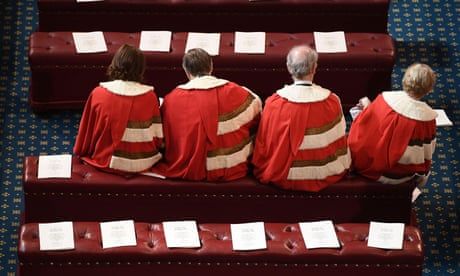
MPs are right to abolish hereditary seats in the upper house. However, Britain needs a representative second chamber fit for modern democracy
More than a century ago, the 1911 Parliament Act restricted the House of Lords’ powers under threat of a flood of Liberal appointees. The act boldly declared that “it is intended to substitute for the House of Lords as it at present exists a Second Chamber constituted on a popular instead of hereditary basis, but such substitution cannot be immediately brought into operation”. This “temporary” measure has become a historic understatement, frustrating those who seek reform – including this newspaper.
MPs took a step forward this week, voting to abolish hereditary peers in the Lords. The bill aims to end the 92 seats reserved for those inheriting titles through paternal lineage – a long-overdue decision. It completes what Tony Blair began in 1998 when ministers tried to expel those in the Lords by birth. The hereditary principle is a relic. While royalty endures ceremonially, inherited political power undermines equality, representation and accountability in government.
Continue reading...